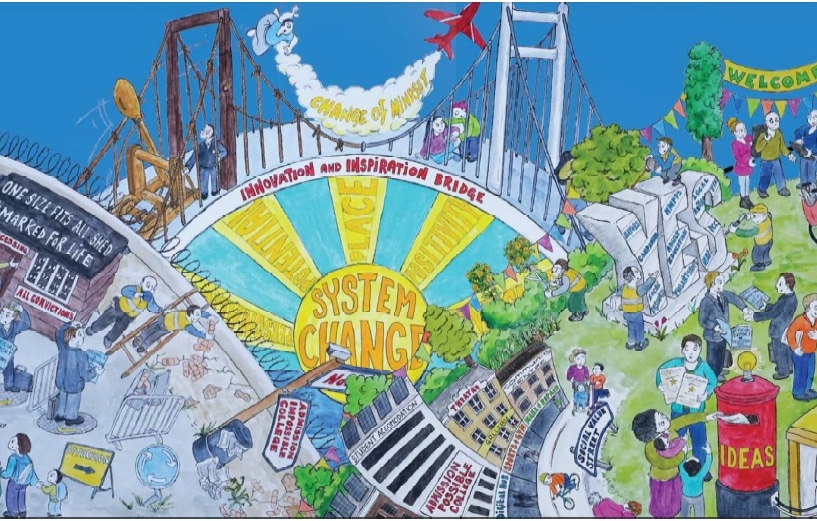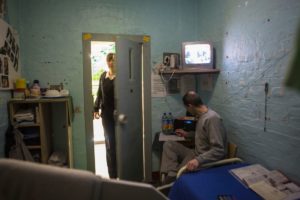Transforming Further Education in the Justice System

A transformative vision for the future of Further Education in supporting people leaving prison or on probation.
A partnership between Justice Futures and the UCL Centre for Education and Criminal Justice brought together over 70 participants to co-create a vision and blueprint for the future role of further education colleges in supporting people leaving prison or on probation into education, training and careers in the art, sports and digital industries. Together they have just (15 October 2025) published a report: Further education and the justice system seeking transformation.
These sectors were chosen because they are popular among people in the justice system but are typically overlooked in justice training provision which often focuses on construction, logistics and hospitality. The authors argue that FE colleges are well placed to support such a transformation because they are a countrywide resource offering learning opportunities well suited to many prisoners even though they currently play a minimal role in the system.
A failing system
The report is published at a time when there are grave concerns about the quality and accessibility of prison education and training for work. Probation pathways are also weak with limited opportunities for meaningful education and training through community sentences. The authors point out that for many people intersecting inequalities, including race, gender, neurodivergence, disability and stigma from criminal records, compound these barriers.
Earlier this year the report’s authors ran a number of workshops and undertook interviews and surveys which explored the current situation, pockets of innovation and the potential for a transformative future.
Participants described the current Further Education and justice systems as dire, disconnected and dysfunctional and limited by rigid policies, poor practices and systemic barriers. They were able to identify some examples of best practice where personalised, place based and partnership driven approaches were creating new possibilities.
Their vision for the future focused on collaborative, people-centred systems with flexible funding, coproduced policies, inclusive admissions and genuine partnerships between Further Education, justice and employers.
Key findings
Participants identified five critical success factors for transforming FE within the justice sector:
- The mindset shift is foundational. Moving from a can’t do to a can-do culture across FE and justice systems was seen as essential to unlocking progress. A shift in the values and principles that hold systems in place is needed to underpin any transformation.
- Personalisation is critical. It was felt that “one size fits all” models fail and that there is significant value in a future system which offers multiple and flexible learning pathways.
- Partnerships drive innovation. The most promising initiatives emerged where FE, justice, charities and employers work together especially at a local and regional level.
- Sustainability matters. Short term projects were not considered sufficient; long term funding and structural change are required to embed success.
- Lived experienced leadership is vital. People with convictions must be central in designing, delivering and shaping policy.
A vision of transformation
Participants envisioned a future where:
- Every prison is connected to its local college.
- Contracts and funding are flexible, sustainable and co produced.
- Vetting and admissions processes are fair, transparent and context sensitive.
- Arts, sports and digital industries are valued as serious career pathways.
- People leaving prison or on probation receive holistic and personalised support enabling them to thrive in education and employment.
Conclusion
The report argues that a different future is not only possible but already beginning to emerge. Project participants argue that by nurturing innovation, dismantling system barriers and embedding collaboration across sectors, FE colleges and their partners can play a transformative role in reducing inequalities and improving outcomes for people leaving prison or on probation.
The header image is taken from the report and was created by Erika Flowers, artist and participant in the project.
Probation posts sponsored by Unilink

Excellence through innovation
Unilink, Europe’s provider of Offender/Probation Management Software

 2 hours ago
1
2 hours ago
1
.jpeg)



















.jpeg)













 English (US) ·
English (US) ·